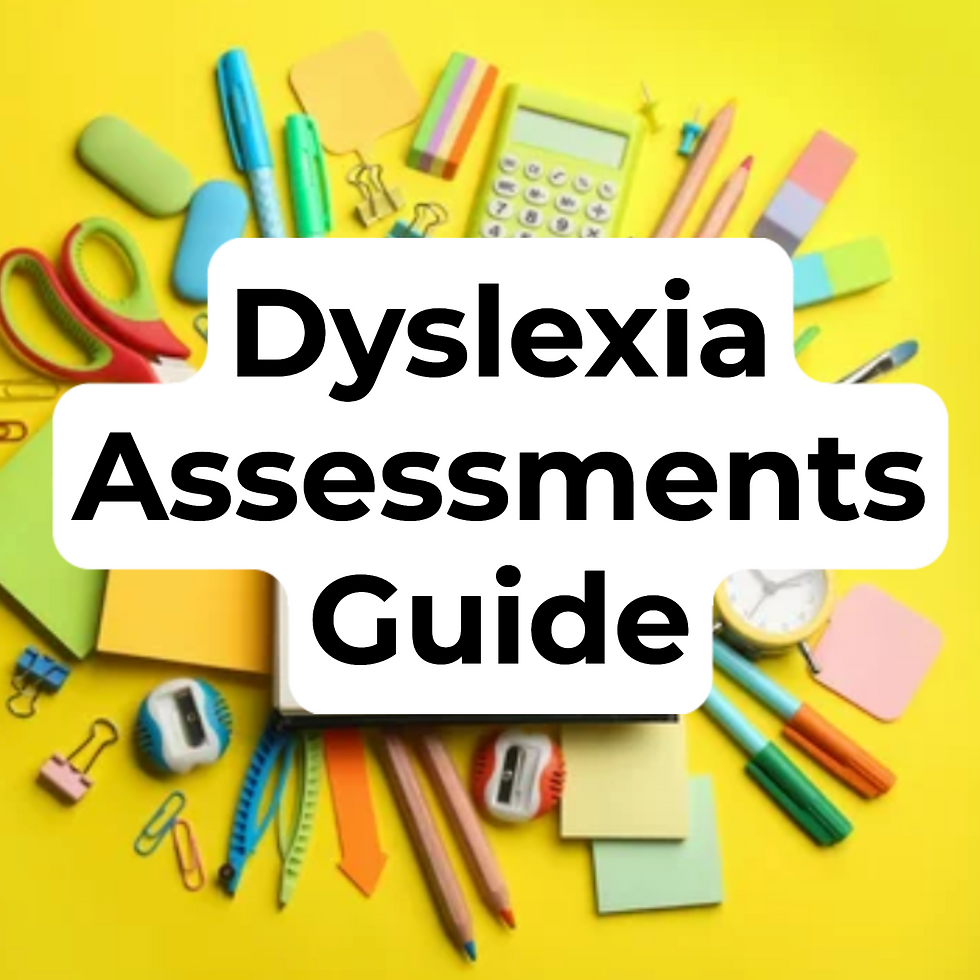Three reasons why you should have a dyslexia assessment
- Aug 21, 2025
- 2 min read
Updated: Aug 27, 2025
Dyslexia is often misunderstood as simply “trouble reading,” but it’s much more than that. It’s a specific learning difference that can affect reading, writing, spelling, and sometimes processing speed or working memory. The good news? With the right support, people with dyslexia can thrive academically, professionally, and personally. But first, you need to know if you have it — and that’s where a dyslexia assessment comes in.
A formal dyslexia assessment gives you clarity. Many people go through life suspecting something is “off” with how they learn but never knowing exactly why. This uncertainty can lead to frustration, low confidence, and unnecessary self-doubt. A dyslexia assessment identifies your strengths and challenges, helping you understand how your brain works.
It also opens the door to tailored support. Once dyslexia is identified, you can access tools, strategies, and accommodations designed to make learning and work more manageable. These might include extra time on exams, assistive technology like text-to-speech software, or specific teaching methods that suit your learning style.
For children, early assessment means early intervention — which can dramatically improve outcomes. For adults, it can mean unlocking career potential, reducing stress, and finally having an explanation for lifelong struggles.
There’s also an emotional benefit. Many people feel a huge sense of relief after being diagnosed. It reframes difficulties as differences, not failures. Knowing there’s a reason behind the challenge allows you to approach learning with renewed confidence.
In short, a dyslexia assessment is not about labelling you; it’s about empowering you. Whether you’re a student, a professional, or someone who’s always wondered why reading and writing feel harder than they “should,” getting assessed can be the first step toward better understanding yourself — and unlocking your full potential. For more information or just a chat, contact mardendyslexiakent@gmail.com.



Comments